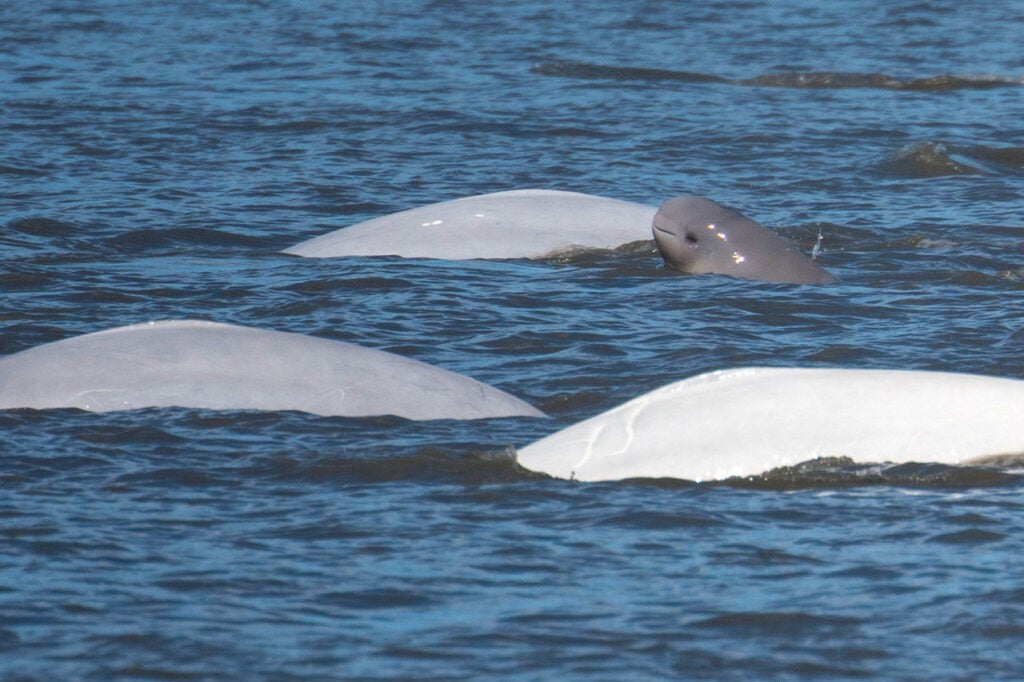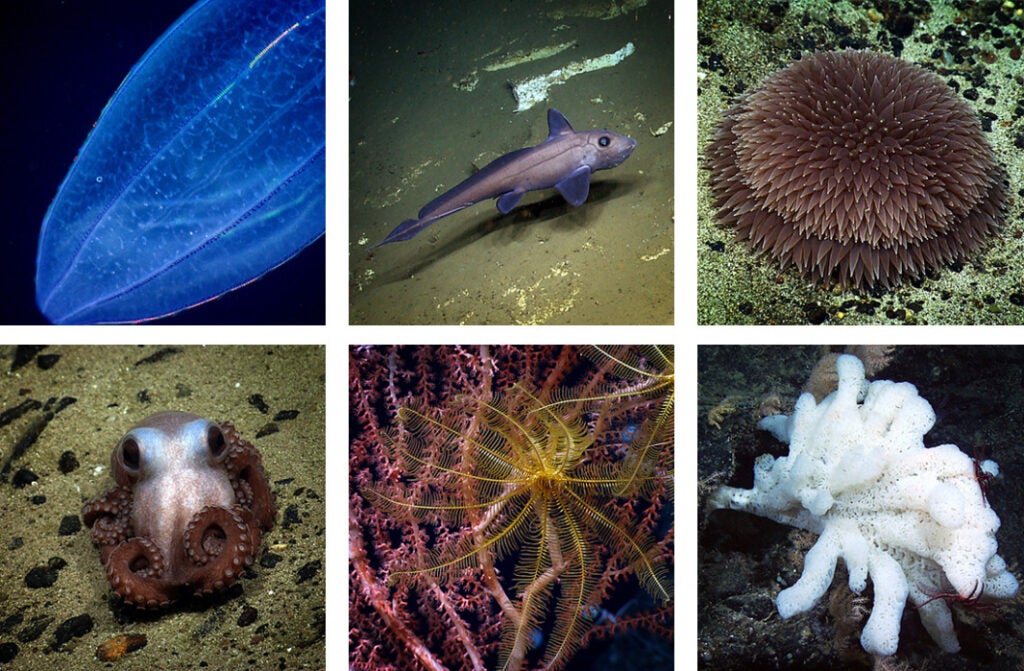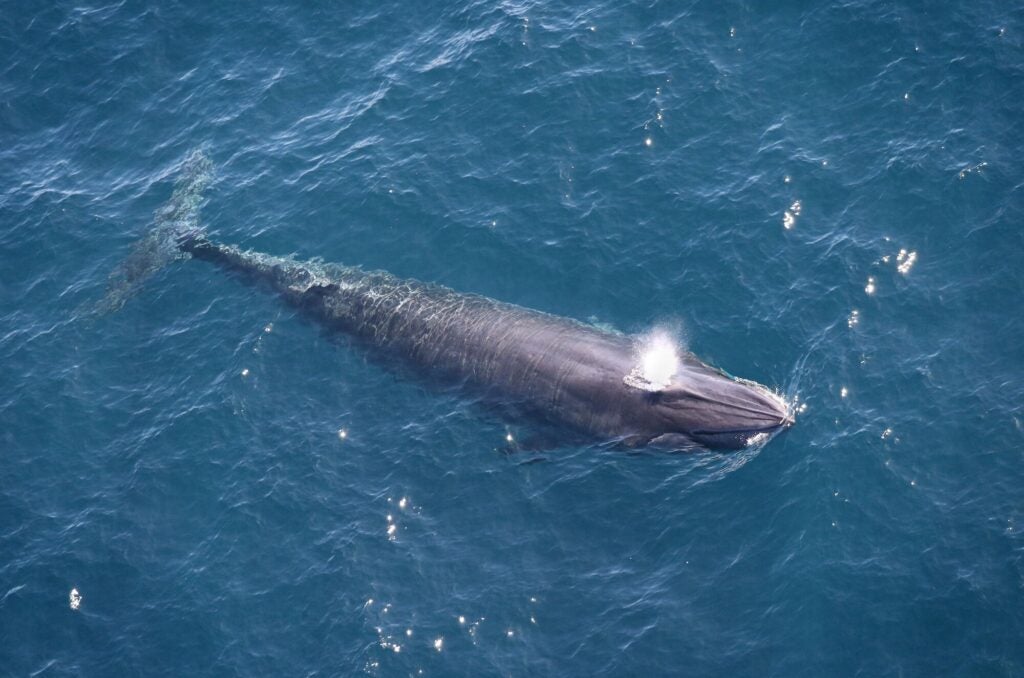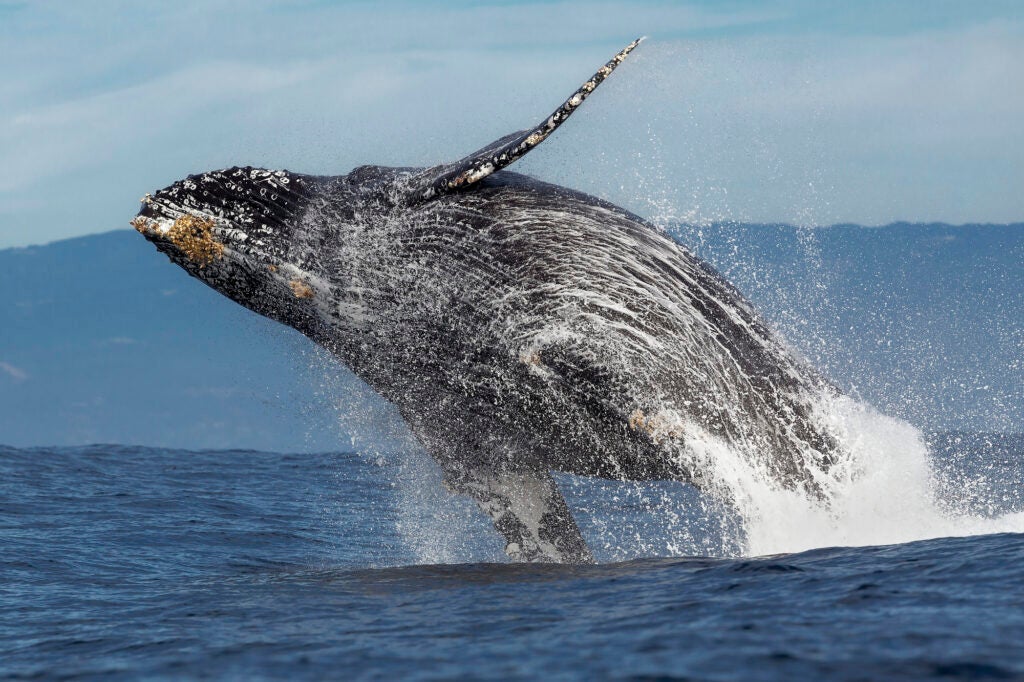(206) 343-7340
info@earthjustice.org
Media Inquiries
Julie Hauserman
Public Affairs and Communications Strategist
jhauserman@earthjustice.org
Legal Assistance Inquiries
Contacto de Prensa
Robert Valencia
Estratega de Comunicaciones y Asuntos Públicos Hispanos/Latinos
rvalencia@earthjustice.org
Earthjustice’s Oceans Program uses the power of the law to safeguard imperiled marine life, reform fisheries management, stop the expansion of offshore oil and gas drilling, and increase the resiliency of ocean ecosystems to climate change.
Our Oceans Program staff are based in Earthjustice’s offices in Seattle and San Francisco.
Our Impact
Since Earthjustice’s Oceans Program was founded in 1998, we’ve played a key role in enforcing domestic laws to compel better stewardship of the oceans.
Through our legal work in the courts and advocacy to government agencies and Congress, we’ve established important precedents to ensure the federal government is managing our nation’s marine resources more sustainably.
We continue to build on that work by defending and improving environmental laws and regulations that safeguard marine habitats, protecting keystone species both within and outside our borders, and ensuring that fisheries management accounts for the needs of marine ecosystems.
Protecting Forage Fish, Sharks, and Whales
We’re focused on reforming fishery management from a system that maximizes extraction to one that takes care of marine wildlife and ecosystems.
We work to ensure that marine predators like salmon, sharks, seabirds, sea lions, whales, and many more have enough to eat by advocating for ecosystem-based catch limits, which would protect both the forage fish, and the many species that rely on them. We also work to protect apex predators and ecosystem engineers — such as sharks and whales — that are important for the wellbeing of all marine species and resilient marine ecosystems.
Ending Offshore Fossil Fuel Development
We’re fighting to stop offshore fossil fuel development, while finding new ways to help our ocean ecosystems become more resilient to damage caused by climate change.
We’re focused on stopping new and expanded offshore oil and gas development in the Gulf of Mexico region — and reversing the harms and safety risks caused by existing development.
Protecting Ocean Wildlife Across Borders
We’re building international partnerships to protect ocean wildlife. We’re also advocating to strengthen our domestic laws that impact international fishing activities and internationally fished species, including Illegal, Unreported, and Unregulated (IUU) Fishing, to include more robust protections.
We currently approach this work through the lens of sharks, which are essential to healthy ocean ecosystems, but face a myriad of threats including overfishing.
Highlights of our work include:
Pacific Ocean
- We fought to ensure that threatened sea otters have a chance to recover. Most recently, we intervened on the side of the government to successfully turn back the misguided efforts to eliminate vital protections for the imperiled marine mammal.
- We’re fighting to secure science-based catch limits and protective measures for anchovy and sardines off the coasts of California, Oregon, and Washington. These forage fish are essential to healthy populations of sea lions, pelicans, and other sea birds, as well as humpback whales. However, climate-driven ocean conditions and excessive fishing have exacerbated declines in these naturally fluctuating populations and have threatened the food supply for dozens of marine fish and wildlife species.
- We continue to advocate for measures to stop whales and leatherback sea turtles from entangling in fishing gear.
- We successfully advocated for the need for stronger protections for oceanic whitetip sharks in the Western Pacific. A threatened species, whitetip sharks are killed in significant numbers in both Pacific and Atlantic fisheries as bycatch.
Atlantic Ocean
- We’re working to ensure that a planned dredging project in Fort Lauderdale doesn’t further stress Florida’s coral reefs — the only near-shore reef system in the continental United States and the driver for a multibillion-dollar fishing and recreational economy.
- We helped a broad coalition stop seismic airgun surveys. The blasts from these airguns not only harm marine mammals and other ocean life — including the critically endangered North Atlantic right whale — but they also act as a dangerous precursor to offshore drilling for fossil fuels.
- We successfully fought to remove deadly sink gillnet fishing gear that can entangle highly endangered right whales from thousands of square miles.
- We’re litigating to force the government to put limits on the bycatch of dusky shark populations, which have plummeted by 85% since the 1970s. Dusky sharks are a key top predator in the Atlantic and Gulf of Mexico that are struggling to rebuild after suffering from decades of overfishing.
Gulf of Mexico
- We’re challenging rollbacks of key conservation measures for bluefin tuna — including a highly successful prohibition on pelagic longline fishing in critical spawning areas.
- We’re also challenging the federal government’s failure to adequately protect threatened and endangered marine life — such as sea turtles and the highly endangered Rice’s whale — from oil and gas development.
- We’re fighting to reinstate critical drilling safety regulations, adopted to prevent a repeat of the Deepwater Horizon disaster. The Trump administration rolled back these safety measures without regard to the Gulf communities that would be devastated by another catastrophic oil spill.




